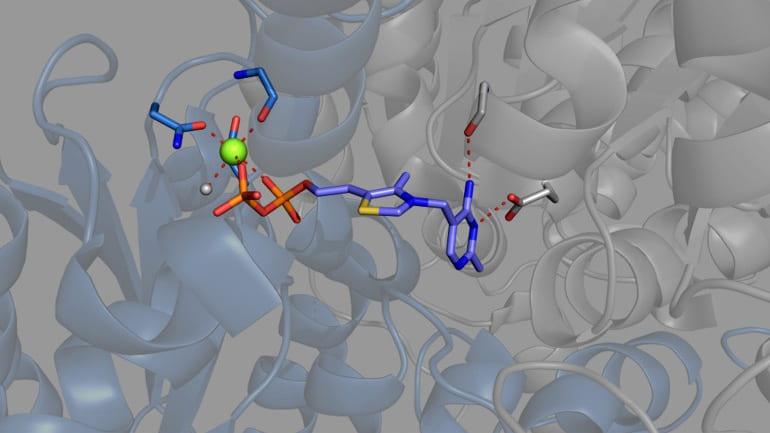Northwestern University has been chosen by the National Science Foundation to lead a new Center for Chemical Innovation (CCI). The national center’s diverse research team will focus on harnessing the power of biocatalysis found in nature to forge new processes for a variety of practical developments, ranging from fine chemical production and sustainable chemical synthesis to new medicines that address critical societal needs.
Led by Northwestern’s Karl Scheidt, the Center for Chemoenzymatic Synthesis includes experts in chemical synthesis, biocatalysis, protein engineering and machine learning from seven universities across the country and in the U.K. The research team will develop unprecedented transformations and achieve new selectivity strategies by applying novel concepts in biocatalysis to the sustainable making of chemicals, a process called chemoenzymatic synthesis.
“Northwestern is the ideal place to launch this center given its tremendous strengths in chemistry and connected areas of science and engineering,” said Scheidt, whose research focuses on the synthesis and investigation of bioactive molecules. “Advances we make in this area of chemoenzymatic synthesis will provide a solid scientific foundation for addressing the production challenges of new medicines and materials in the 21st century.”
Scheidt is a professor of chemistry in the Weinberg College of Arts and Sciences and a professor of pharmacology at Northwestern University Feinberg School of Medicine.
Enzymes are proteins that control and catalyze chemical reactions essential for life. Nature’s ability to employ these highly evolved biological catalysts to generate diverse and complex molecules through selective reactions has inspired chemists for decades and has led to the field of biocatalysis. The potential societal impacts of biocatalysis are significant, yet chemists have only recently begun to leverage these efficient and selective natural processes. The Center for Chemoenzymatic Synthesis will address this need to do more.
“By exploring chemical processes involving enzymes, this new center will help create new scientific understanding of the intricate and wonderous chemical and biological processes that have evolved in living things through natural selection,” said NSF Chemistry Division Director Dave Berkowitz. “The team will then modify the natural enzymes to do entirely new chemistry. This is a rich and promising field, and we look forward to seeing what comes forward from this highly collaborative team.”
In addition to creating new processes for industry, another important goal of the center is to train and enable both the current scientific community and the next generation of scientists to integrate biocatalysis and chemical synthesis with enzymes in their everyday research.
The funding of $1.8 million over three years establishes a phase 1 CCI. Scheidt said the center will then seek phase 2 funding, providing an additional $4 million over five years. Once established, the center would tie into synthetic biology and biomedical engineering — also strengths at Northwestern — and involve additional Northwestern faculty.
Current center team members are from Northwestern, the University of California, Berkeley, the University of Michigan, Yale University, the University of Rochester, Carnegie Mellon University and the University of Manchester.
Scheidt also is former director of Northwestern’s Center for Molecular Innovation and Drug Discovery; the founder of NewCures, Northwestern’s biomedical accelerator; a member of the Robert H. Lurie Comprehensive Cancer Center of Northwestern University; and a member of the Chemistry of Life Processes Institute.
Main image; The research team will develop unprecedented transformations and achieve new selectivity strategies by applying novel concepts in biocatalysis to the sustainable making of chemicals, a process called chemoenzymatic synthesis.
Click here to view the original story written by Megan Fellman for Northwestern Now on September 29, 2022.
